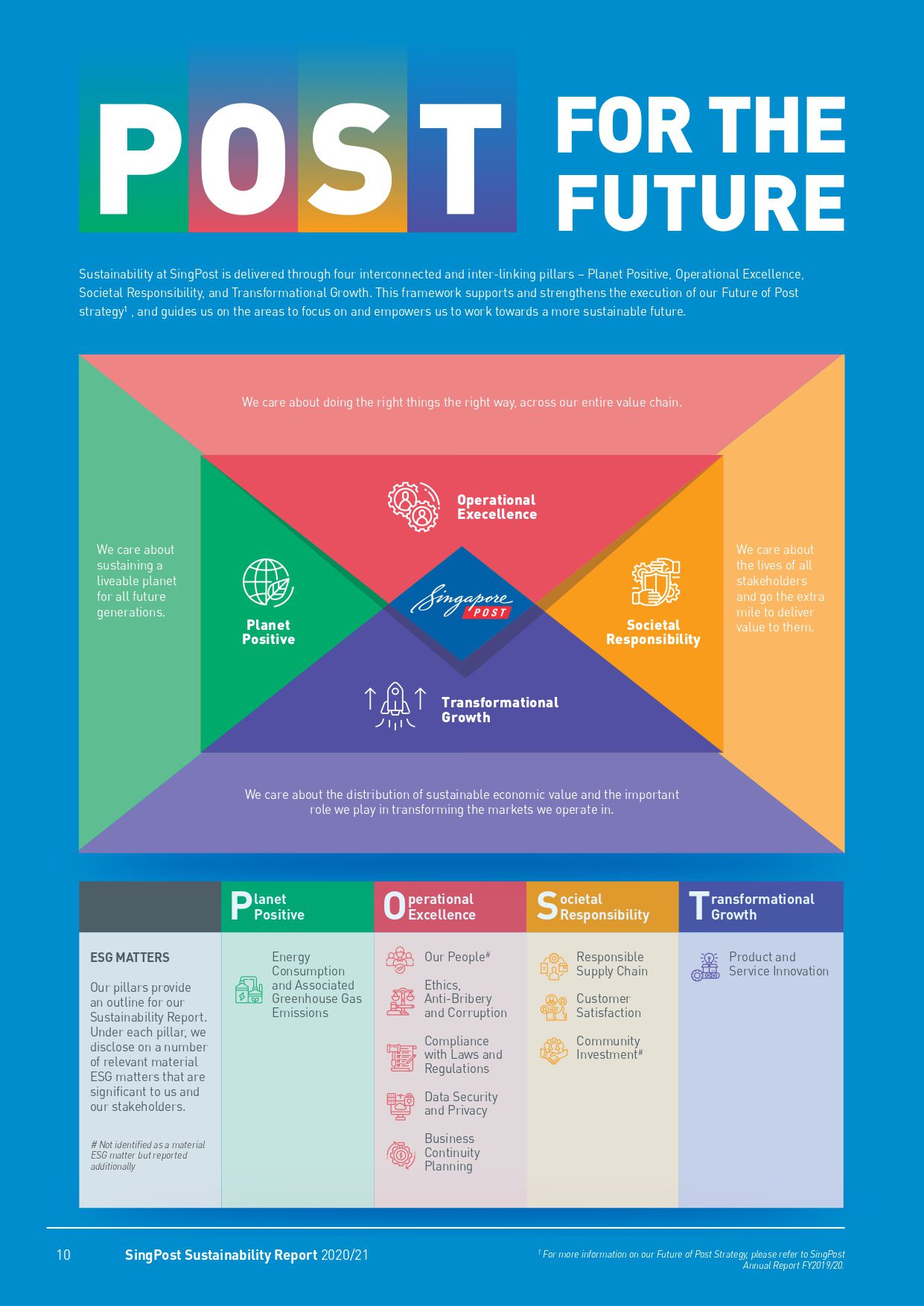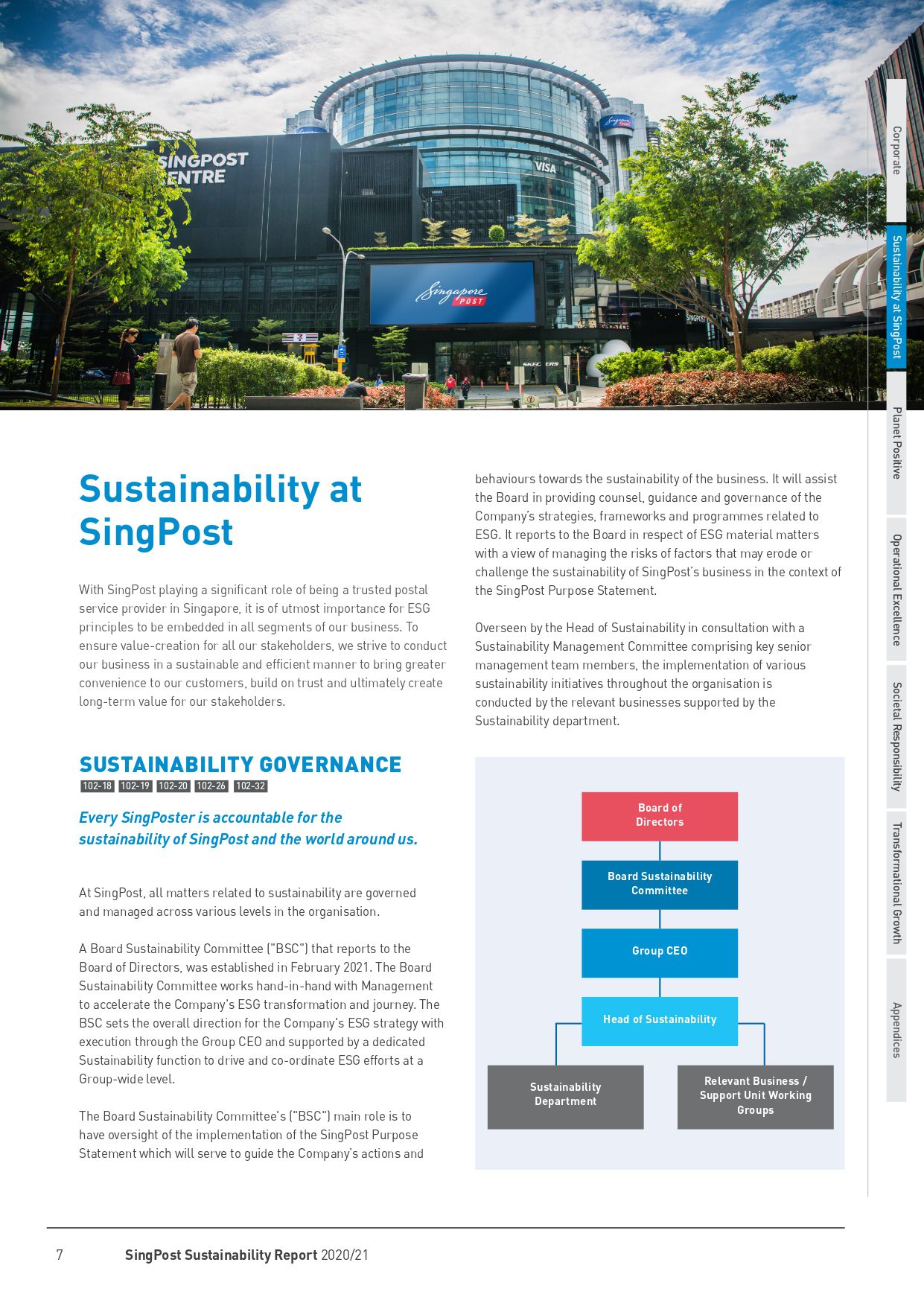In the ever-changing business landscape that is impacted by Covid-19, corporates which actively and effectively manage their exposure to environmental, social and governance (ESG) risks and opportunities, will likely increase their capacity to operate successfully.
There is a growing demand for greater transparency regarding non-financial reporting by regulatory bodies, socially responsible investors, international organisations and also the public. In other words, stakeholders are calling for a transparent disclosure of information concerning the so-called ESG — environment, social, governance — issues within and related to business management.
As a business, it is crucial to promptly respond to this demand because the companies’ success is now more dependent on their capability to create value, avoid negative environmental impacts, and maximising positive societal effects such as spurring job creation, promoting ethical business, and more.
According to Singapore Exchange (SGX) in Dec 2021, climate reporting would be mandatory for listed companies in the financial, energy, agriculture, food, and forest products industries, beginning in the financial year (FY) of 2023.
Starting in January 2023, all listed issuers would also need to subject their sustainability reporting processes to internal review by their internal audit function, and all directors also have to undergo a one-time training on sustainability. Besides climate and ESG topics, issuers will be obliged to set a board diversity policy that addresses relevant aspects of diversity such as gender, skill, and experience, etc. They must also describe this policy in their annual reports and include details such as diversity targets, plans, timelines, and progress.
In this article, we provide information on the following:
- Definition of Sustainability Reporting as part of Corporate Social Responsibility (CSR)
- The importance of having the report
- 2 common frameworks of Sustainability Report
- An example of a Sustainability Report from one of our case studies.
Scroll down to read more.
What is Sustainability Reporting and Why It is Important?

According to IGI Global, a sustainability report is a key instrument for companies to communicate their sustainability performances and how their activities impact the environment and many other aspects of society.
Through sustainability reporting, companies communicate their performance and impacts on a wide range of sustainability topics, spanning environmental, social, and governance parameters. It enables companies to be more transparent about the risks and opportunities they face, giving stakeholders greater insight into performance beyond the bottom line.
The Importance of Sustainability Reporting
Nowadays, making claims about your level of sustainability is not enough. Companies are required to provide tangible, credible demonstrations about their sustainability level, by following proper guidelines for sustainability reporting. By having this report, companies can get major benefits such as:
- Improving operational efficiency
- Making it as a tool for better risk management
- Helping in increasing stakeholder trust
- Affecting long-term management strategy, policy and business plans
Get Started with a Set of Core ESG Metrics
To begin writing your sustainability report, you can start with a set of Core ESG Metrics. The metric is intended to provide guidance for issuers to disclose a common and standardised set of ESG metrics, which in turn will create better alignment between users and reporters of ESG information. Here are the details of the Core ESG Metrics released by SGX in December 2021.
Environmental
Social
Governance
Images source: SGX Core ESG Metrics 2021
2 Common Sustainability Reporting Frameworks
1. GRI (Global Reporting Initiative) Reporting Standards
In 1997, the GRI (Global Reporting Initiative) was founded in the United States in response to calls for corporate transparency following the Exxon Valdez oil spill. The GRI standards are used by approximately two-thirds of all companies worldwide, and they are designed as an “easy-to-use modular set” that creates a common language for organisations to report their sustainability impact in a consistent and credible manner.

Image source: Global Reporting Initiative
The GRI Standards aim to help companies to recognise their outward impacts on these 3 main sectors: economy, environment, and society. By helping to increase businesses’ accountability along with the transparency on their positive and negative contributions toward sustainable development, it is an efficient framework for reporting to a wider range of stakeholders, investors, and consumers in particular.
Based on the data from GRI Community, there are more than 500 organisations from over 70 countries that are part of the GRI Community, from a wide range of sectors such as: agriculture, automotive, chemicals, communications, commercial services, conglomerates, construction, education, energy, finance, food, healthcare, leisure, manufacturing, mining, non-profit, technology, tourism, transport, real estate, retail, and waste management.
Learn more about the GRI Standards (the latest update from 2021): Consolidated Set of GRI Standards
2. United Nations Sustainability Goals
The Sustainable Development Goals (SDGs) are a high-level group of objectives issued by the United Nations as part of a “shared blueprint for peace and prosperity for people and the planet, now and in the future.” They were formally accepted by the UN’s 193 member states at the New York summit in 2015.
Image source: UN, taken from Unicef.org
Officially began in 2016, the SDGs’ 17 primary goals focus on five areas: people, planet, prosperity, peace, and partnership, including zero hunger, quality education, clean water & sanitation, and affordable & clean energy. Each objective is supported by a set of quantifiable benchmarks that are tied to specific dates.
According to the UN, “ending poverty and other deprivations must go hand-in-hand with efforts that can improve health and education, reduce inequality, and drive economic growth — all done while tackling climate change and working to preserve our oceans and forests.”
These high-level goals set by the UN are different from reporting frameworks issued by NGOs. When reporting, around two-thirds of global corporations link their business operations to the SDGs, and the SDGs are also widely used as standards for corporate sustainability programmes.
However, despite its huge influence, KPMG notes that corporate reporting on the SDGs focuses solely on positive contributions with a lack of transparency on the negative sides. Companies should concentrate their efforts on the goals with the greatest actual and potential impact, either positive or negative.
Case Study: Singapore Post Sustainability Report
Download here: Epic Dialogue — Singapore Post Sustainability Reporting
The report is aligned and prepared according to the Global Reporting Initiative (GRI) Standards: Core Option. It selected the GRI Standards for its sustainability reporting framework as they are internationally recognised as one of the leading global standards in reporting on an organisation’s sustainability impacts.
Sustainability at SingPost is delivered through four interconnected and inter-linking pillars — Planet Positive, Operational Excellence, Societal Responsibility, and Transformational Growth. This framework supports and strengthens the execution of SingPost’s Future of Post Strategy, and guides it on the areas to focus on and empowers it to work towards a more sustainable future.


Designed by Epic Dialogue, SingPost’s Sustainability Report utilises clear designs and real-world accounts of employees to showcase their sustainability efforts over the past year and position them as a market leader in Logistics Business. SingPost prides itself on accountability.
To effectively showcase their sustainability efforts and successes, we employed the use of data visualisation and storytelling. A more human and personable element was then added by incorporating real-world accounts of employees and photos, demonstrating SingPost’s commitment to the community, instilling trust and confidence in stakeholders and customers.
Need help making a sustainability report for your companies? As strong believers of doing well by doing good, we conduct Sustainability Communications in Asia and beyond to champion initiatives that empower people and create responsible businesses. We create key stakeholder communications for some of Singapore’s largest listed companies.
Visit our website or contact us below to start your Sustainability Reporting today.



